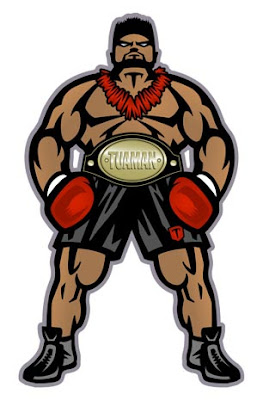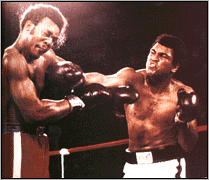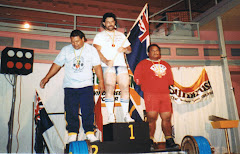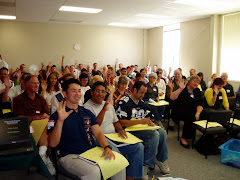- Would you like people to notice the work you've been doing?
- Would you like people to think of you when they need a person with your skills and knowledge?
- Would you like to gain that promotion or advance your career?

Colin's Collection of Comments


If you are doing that then you are indeed moving towards mastery as a trainer. There are some exceptional trainers out in the world – only a few will be able to consciously tell you what they do and know how they do what they do. Therefore the place to start is for you to know that training is about being aware, being purposeful and deliberate, in all that you do.
Consider seriously the following questions:
 you’re doing it, but prior to you doing it! Thinking and doing at the same time is not the best approach when training. And certainly is not a hall-mark of a master trainer. First think and then do. (that's a good start for now)
you’re doing it, but prior to you doing it! Thinking and doing at the same time is not the best approach when training. And certainly is not a hall-mark of a master trainer. First think and then do. (that's a good start for now)
Initial 1st Steps
So... this is where I want you to begin – to become increasingly more aware and therefore mindful of what you do as a trainer. (Or coach, teacher, adult educator, presenter)
 how me where it says that success comes easily. Show me someone who has attained their all time best performances on a global scale, and committed only partially to their own success. Where does hard work, dedication, sacrifice and long hours of applying oneself to the fulfillment of a life long dream NOT ask of you - your all? Asks of you your every fibre of being, every drop of blood stained sweat and demand fully of you, your precious time and your money.
how me where it says that success comes easily. Show me someone who has attained their all time best performances on a global scale, and committed only partially to their own success. Where does hard work, dedication, sacrifice and long hours of applying oneself to the fulfillment of a life long dream NOT ask of you - your all? Asks of you your every fibre of being, every drop of blood stained sweat and demand fully of you, your precious time and your money. 
 oaching, training, presnting, politics, investments, marriage etc... the universal law of maximum effort births maximum results can not be ignored or avoided.
oaching, training, presnting, politics, investments, marriage etc... the universal law of maximum effort births maximum results can not be ignored or avoided.
 such away, yet I've heard parents say the same thing that was said to me, to their children "... don't say hate. Hate is a strong word and you don't mean - hate. You mean you dislike it".
such away, yet I've heard parents say the same thing that was said to me, to their children "... don't say hate. Hate is a strong word and you don't mean - hate. You mean you dislike it".  ake action and do something about it. For some I meet, they wont change until they actually hate the situation they are in, and then, finally, they'll take action and make the change needed.
ake action and do something about it. For some I meet, they wont change until they actually hate the situation they are in, and then, finally, they'll take action and make the change needed. 's, which you are now to load into the system and make available to the client.
's, which you are now to load into the system and make available to the client. 
Well there you go! You now have a few more ideas on how to address this situation when it happens to you (it will if it hasn't already), whether you are a mum, son, or senior manager.
(oh, and a plug at schools - you also need to get better at doing this too! Read an upcoming article titled "What are you teaching them?")
I hope that you'll be more aware of the role that you play, when faced with having to deal with someone who has made a mistake in your life and the mistake, accident or error impacts you. It's a defining moment for you both. If dealt with correctly, it can become an opportunity to grow you both.
Oh, as for the bank processor story told at the beginning:
"What a pathetic way to deal with an honest and innocent mistake made by one of your employee's.
Shame on you WESTPAC BANK!"
For more background on this banking blunder, click on:
http://www.3news.co.nz/National/Story/tabid/423/articleID/105533/cat/640/Default.aspx
 , fitness regime or business venture, it doesn't really matter. You, wanting to achieve and practicing alone, isn't enough. A key factor in your long term success, is you're ability to be consistent over time.
, fitness regime or business venture, it doesn't really matter. You, wanting to achieve and practicing alone, isn't enough. A key factor in your long term success, is you're ability to be consistent over time.

 enthusiastic and committed student and you religiously attended your lessons without missing a single session and you made very good progress. You also did your own private practice at home, in your room. And you practiced playing your guitar an additional 5 hours per week.
enthusiastic and committed student and you religiously attended your lessons without missing a single session and you made very good progress. You also did your own private practice at home, in your room. And you practiced playing your guitar an additional 5 hours per week.  r coaches etc... The amount of additional self-directed practice you are able to commit to, is entirely up to you.
r coaches etc... The amount of additional self-directed practice you are able to commit to, is entirely up to you.  training etc... You've committed yourself to researching the field. So how do you know if you are practicing, applying or demonstrating what you have learnt, correctly?
training etc... You've committed yourself to researching the field. So how do you know if you are practicing, applying or demonstrating what you have learnt, correctly? e has an exceptional grasp of the sport and the ability to teach the necessary skills to elite players, byway of giving effective feedback to them. This is a common theme amongst great sports coaches. They are great communicators, have an indepth knowledge of the sport and know how to "read" the players they coach. They can identify with ease the small intricasies that make the difference to a players long term performance gains.
e has an exceptional grasp of the sport and the ability to teach the necessary skills to elite players, byway of giving effective feedback to them. This is a common theme amongst great sports coaches. They are great communicators, have an indepth knowledge of the sport and know how to "read" the players they coach. They can identify with ease the small intricasies that make the difference to a players long term performance gains.Ask Yourself
Difficult Times
One of the most difficult things I have found that determines the receptivity to feedback I've given to others in the past, is the level of success they have already had. Their success becomes a convincer for them that what they have been doing works for them! When in fact, they need to put away some of what they do, even though it has gained them a degree of success to date. And take on t he feedback being given to them, which will initially result in a momentary loss in their progress, yet take them to a higher performance level over the long run.
he feedback being given to them, which will initially result in a momentary loss in their progress, yet take them to a higher performance level over the long run.
Tiger Woods, changing his technqiue is a good example of how he was willing to make changes to his golf swing and embrace the learning cycle performance dip, to gain an increase in performance long term.
Willingness
Over the years I have been asked by many to give them feedback. Few really, truely want it. What I've found is, they want praise that will bolster their egos, confirmation of what they are doing already as being right or an opportunity to say what they know.


 lenge long held assumptions by the domain. And ultimately, heavily contribute to their mastery of the field they have long laboured in.
lenge long held assumptions by the domain. And ultimately, heavily contribute to their mastery of the field they have long laboured in.










































